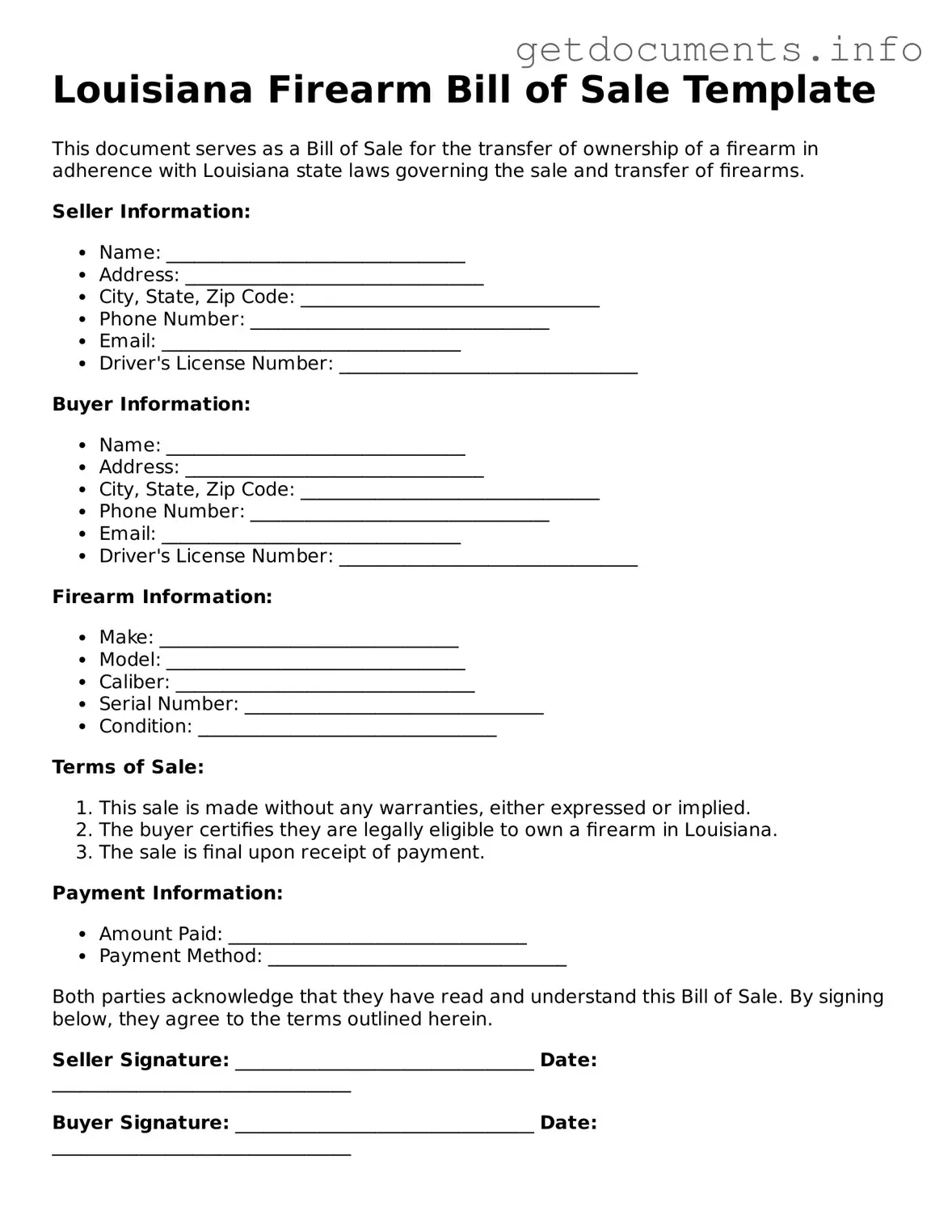Free Firearm Bill of Sale Template for Louisiana
The Louisiana Firearm Bill of Sale form is a legal document used to record the sale and transfer of firearms between individuals in the state of Louisiana. This form serves to protect both the buyer and the seller by providing a clear record of the transaction. Understanding how to properly fill out this form is essential for ensuring compliance with state laws.
To get started, fill out the form by clicking the button below.
Access Firearm Bill of Sale Editor

Free Firearm Bill of Sale Template for Louisiana
Access Firearm Bill of Sale Editor
Got places to be? Complete the form fast
Fill out Firearm Bill of Sale online and avoid printing or scanning.
Access Firearm Bill of Sale Editor
or
⇩ PDF File
